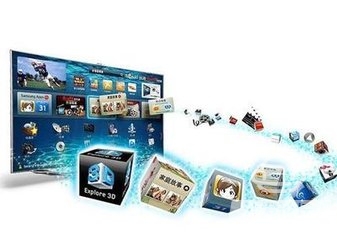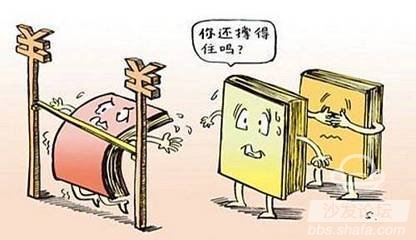
With the guidance of LeTV and Xiaomi, Internet companies have set foot in the smart TV industry. However, an embarrassing reality is that so far, these Internet companies have not made money on smart TV projects.
Stormwind whale is involved in smart TV
Not long ago, Storm Technology joined hands with Haier Group’s companies, such as Riri Shun, Aofei Animation, and Sannuo Digital Audio, to form a joint venture to jointly build Storm TV.
Storm Technology CEO Feng Xin revealed that Storm Technology will use the existing storm PC, mobile end of a total of 50 million daily active users and the new brand Storm TV bundled. On the other hand, Japan and the United States took out tier-3 and tier-4 offline channels and tens of thousands of service outlets throughout the country for distribution. Aofei Animation will come up with differentiated content, including animations, movies, and games to enhance the tackiness of TV users.
Industrial Securities believes that Storm TV will help storm technology into the home entertainment market. The storm enters home entertainment in the form of TV, which can continue to enhance the brand effect of storms, open up channels for the storm mirrors of virtual reality products, and provide a channel for experience, sales, and distribution for storm mirrors through strategic cooperation with Riri Shun. Storm mirrors are more likely to replace traditional home entertainment terminals.
The news that Storm Technology has entered the smart TV has not yet cooled down. It is also reported in the industry that Microwhal Technology, co-founded by Li Ruigang, the former president of Shanghai Wenguang, and Li Huaiyu, the founding general manager of BesTV, will launch a micro-whale TV. The TV will access all content resources related to the Chinese cultural industry fund managed by Li Ruigang - such as Time Warner, TVB, Oriental DreamWorks, Canxing, IMAX China, etc., covering leisure, sports, entertainment, movie, fashion and many other field.
“People who have changed television are creating TVs in the next era.†Microwhale TV currently defines itself as “a TV belonging to a new generation of Chinese familiesâ€, claiming to rely on massive amounts of video content, convenient interactive experience and leading intelligent data mining. For the majority of young families to provide comfortable entertainment, entertainment and educational experience, so that each family can have home entertainment in the Internet era.
To seize the "living room economy" entrance
According to the “China Internet TV Industry Research Report†published by iResearch, China’s connected TV terminal sales were 23.97 million units in 2013, and the market penetration rate was 51.1%. It is expected that nearly 80% of TVs in flat panel TVs will have 2015 Networking features.
Dong Min, general manager of Owen Cloud Network Black Power Division, believes that smart TV has become the core of the living room economy. Around TV, family members have a lot of entertainment and other activities, and these activities have high added value. TV, as the Internet entrance of the living room, controls the distribution of large-screen traffic.
According to Dong Min, the integration of industries will become the trend of smart TV development. One is the joint foundry of Internet companies, extending the value chain downwards. The second category is the cooperation between traditional brands and Internet companies based on different starting points, their respective division of labor, and sharing of revenue. The third category is the deep cooperation between traditional manufacturers and Internet companies to create joint ventures and brand new Internet TV brands.
And traditional TV companies rely mainly on hardware charge model is different, in recent years, LeTV, Xiaomi in the field of Internet TV mainly adopts "hardware free, content and service charges" strategy, through the "low price" selling point quickly opened the market to attract users eye.
Under the “backwards†of Internet companies, traditional color TV companies have also begun to change their business models and transform into Internet models.
Qin Huizhong, general manager of Qingdao Hisense Electric Co., Ltd., said recently that the competition among TV companies will enter into a competition between the number of users and the value of users. So far, the cumulative activation of Hisense's smart TVs has reached 9.5 million units. By 2017, this figure will increase to more than 30 million. Hisense has already begun to profit by providing smart television value-added services. In the next three years, Hisense will put content services such as video consumption, scene shopping, online education, big screen games and so on into the living room, hoping that the profits brought by content and services after 5 years Greater than or equal to the current hardware sales profit.
How far can you go to make money?
Today, Xiaomi and LeTV seem to have become the target of Internet companies to follow suit.

On July 16th, Xiaomi released a new television product, the Millet TV 2S, which features a 9.9mm ultra-thin all-metal body. It boasts a luxury-class craftsmanship. The price of 2,999 yuan has caused the industry to exclaim. At LeTV’s press conference, Leighton's chairman and CEO, Jia Yueting, dressed in a black T-shirt, was not like an entrepreneur and more like a star actor on the stage under the spotlight. The attendees cheered, but what most surprised the attendees was the compelling price of LeTV's super-TV: 60-inch TV was priced at 6,999 yuan, while the 39-inch popular product was only sold for 1999 yuan.
How can such a low price be profitable? According to people in the industry, whether it is millet or music, as far as the smart TV project itself is concerned, not only is it not able to make money, it is even possible to lose money. The way LeTV and Xiaomi use hardware for free to “scratch†is just “lose moneyâ€. Drink it." From a sales perspective, sales of Samsung, Hisense, and TCL smart TVs were all in the tens of millions of units in 2014. LeTV sold 1.5 million units and millet 300,000 units.
In this regard, Skyworth Digital Chief Executive Yang Dongwen even said that Xiaomi and LeTV claimed that they sell a lot of smart TV, in fact, their monthly sales are not as good as Skyworth's sales.
For the profit model, the answers given by Xiaomi and LeTV are: advertising + content charging. However, Dong Min believes that “there is a breakthrough in the content charging mode for TV users, but the user base is still low.†In his view, this model requires good content and services to attract customers, but it still takes time.
Liu Yaoping, CEO of Storm TV, said that in the past two years, LeTV and Xiaomi have always wanted to become the subversives in the TV industry. Traditional TV brands have also sought to transform themselves. However, from the actual results, both parties have not achieved satisfactory results. The huge body of traditional TV brands wants to completely transform to the Internet, and rebuilding the organizational structure is not an easy task. LeTV and Xiaomi are restricted by policies, content, channels, upstream supply chains and other factors, and it is difficult to increase the volume.
In view of the current development of the domestic Internet TV industry, Ereli believes that from the perspective of the entire industry, the current industry competition is plunged into a price war prematurely, which is detrimental to the healthy development of the industry; from the perspective of the industry chain, the cooperation relationship between the parties is loose, resulting in the lack of continuous cooperation. Sexuality and in-depthness make it difficult to form a stable industrial interest chain. From a business perspective, a mature business model has not yet been formed; from the user level, compared to foreign markets, the user's payment habits in China have yet to be cultivated.
IDC China predicts that several home appliance manufacturers have announced their transition to the Internet, and many Internet companies want to enter the TV market. The difficulty of infiltrating into each other’s professional fields depends on either side. The cross-border integration of Internet companies and home appliance manufacturers will drive both sides to achieve their goals.

UV Sterilizer can be use in office,home. Use for surface sterilizing such as table, documents, etc, it can be also use as air sterilizer. Moreover, Ultraviolet-ray sterilizing is one of the cleanest, most non-pollution, non-chemical, without any color and odor and leaves no residue. Ultraviolet-ray is also able to kill virus and bacteria in a natural way. Still have an advantage is ultraviolet ray sterilizer volume is small, the home is used also very convenient.
UV Sterilizer
Uv Sterilizer Aquariumuv ,Ultraviolet Sterilizer,Coralife Uv Sterilizer,Best Uv Sterilizer
JIANGMEN LEDERLIGHT LIGHTING Co.,LTD , https://www.lederlightcn.com